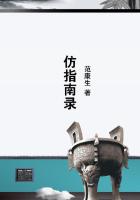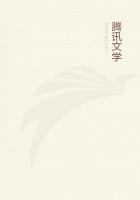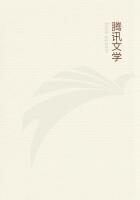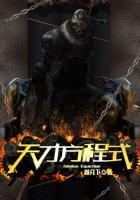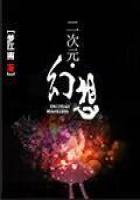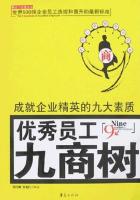It may however be urged that while the possession of that character makes it a quale, it is a relative in so far as it directs upon an external object the power indicated by its name.Why, then, is not "boxer" a relative, and "boxing" as well? Boxing is entirely related to an external object; its whole theory pre-supposes this external.And in the case of the other arts- or most of them-investigation would probably warrant the assertion that in so far as they affect the soul they are qualities, while in so far as they look outward they are active and as being directed to an external object are relatives.They are relatives in the other sense also that they are thought of as habits.
Can it then be held that there is any distinct reality implied in activity, seeing that the active is something distinct only according as it is a quale? It may perhaps be held that the tendency towards action of living beings, and especially of those having freewill, implies a reality of activity [as well as a reality of Quality].
But what is the function of the active in connection with those non-living powers which we have classed as qualities? Doubtless to recruit any object it encounters, making the object a participant in its content.
But if one same object both acts and is acted upon, how do we then explain the active? Observe also that the greater- in itself perhaps a fixed three yards' length- will present itself as both greater and less according to its external contacts.
It will be objected that greater and less are due to participation in greatness and smallness; and it might be inferred that a thing is active or passive by participation in activity or passivity.
This is the place for enquiring also whether the qualities of the Sensible and Intellectual realms can be included under one head- a question intended only for those who ascribe qualities to the higher realm as well as the lower.And even if Ideal Forms of qualities are not posited, yet once the term "habit" is used in reference to Intellect, the question arises whether there is anything common to that habit and the habit we know in the lower.
Wisdom too is generally admitted to exist There.Obviously, if it shares only its name with our wisdom, it is not to be reckoned among things of this sphere; if, however, the import is in both cases the same, then Quality is common to both realms- unless, of course, it be maintained that everything There, including even intellection, is Substance.
This question, however, applies to all the categories: are the two spheres irreconcilable, or can they be co-ordinated with a unity?
13.With regard to Date:
If "yesterday," "to-morrow," "last year" and similar terms denote parts of time, why should they not be included in the same genus as time? It would seem only reasonable to range under time the past, present and future, which are its species.But time is referred to Quantity; what then is the need for a separate category of Date?
If we are told that past and future- including under past such definite dates as yesterday and last year which must clearly be subordinate to past time- and even the present "now" are not merely time but time- when, we reply, in the first place, that the notion of time- when involves time; that, further, if "yesterday" is time-gone-by, it will be a composite, since time and gone-by are distinct notions: we have two categories instead of the single one required.
But suppose that Date is defined not as time but as that which is in time; if by that which is in time is meant the subject- Socrates in the proposition "Socrates existed last year"- that subject is external to the notion of time, and we have again a duality.
Consider, however, the proposition "Socrates- or some action-exists at this time"; what can be the meaning here other than "in a part of time"? But if, admitted that Date is "a part of time," it be felt that the part requires definition and involves something more than mere time, that we must say the part of time gone by, several notions are massed in the proposition: we have the part which qua part is a relative; and we have "gone-by" which, if it is to have any import at all, must mean the past: but this "past," we have shown, is a species of time.
It may be urged that "the past" is in its nature indefinite, while "yesterday" and "last year" are definite.We reply, first, that we demand some place in our classification for the past: secondly, that "yesterday," as definite past, is necessarily definite time.But definite time implies a certain quantity of time: therefore, if time is quantitative, each of the terms in question must signify a definite quantity.
Again, if by "yesterday" we are expected to understand that this or that event has taken Place at a definite time gone by, we have more notions than ever.Besides, if we must introduce fresh categories because one thing acts in another- as in this case something acts in time- we have more again from its acting upon another in another.This point will be made plain by what follows in our discussion of Place.
14.The Academy and the Lyceum are places, and parts of Place, just as "above," "below," "here" are species or parts of Place; the difference is of minuter delimitation.
If then "above," "below," "the middle" are places- Delphi, for example, is the middle [of the earth]- and "near-the-middle" is also a place- Athens, and of course the Lyceum and the other places usually cited, are near the middle- what need have we to go further and seek beyond Place, admitting as we do that we refer in every instance to a place?
If, however, we have in mind the presence of one thing in another, we are not speaking of a single entity, we are not expressing a single notion.
Another consideration: when we say that a man is here, we present a relation of the man to that in which he is, a relation of the container to the contained.Why then do we not class as a relative whatever may be produced from this relation?

